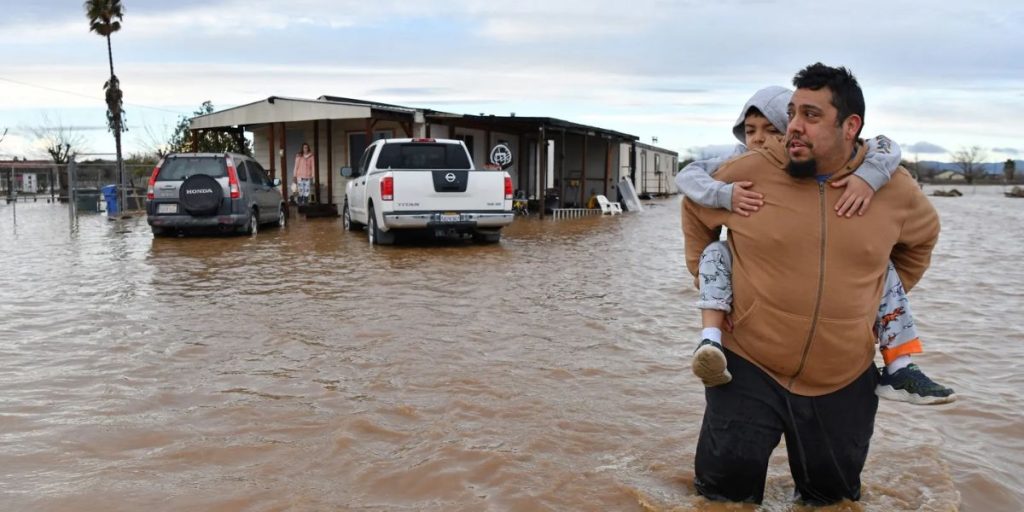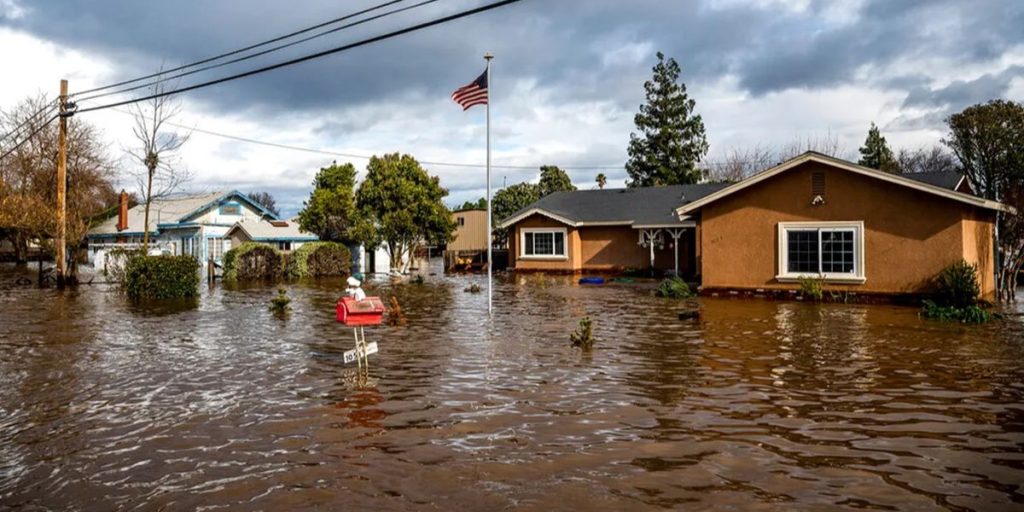California, renowned for its sunny weather and Mediterranean climate, has experienced its fair share of natural disasters throughout its history. Among them, the GREAT CALIFORNIA FLOOD OF 1862 stands out as one of the most catastrophic events to have ever struck the Golden State.
This colossal flood, often referred to as the “Noah’s Ark” flood, left an indelible mark on California’s history, reshaping landscapes and communities in its wake.
The Genesis of the Deluge
The genesis of the Great California Flood can be traced back to a series of atmospheric rivers, colloquially known as the “Pineapple Express.” These powerful and concentrated streams of moisture-laden air originated in the Hawaiian region, funneling towards the west coast of North America.

In the winter of 1861-1862, a succession of these atmospheric rivers converged over California, unleashing an unprecedented amount of rainfall.
Unrelenting Rainfall
The relentless downpour began in December 1861 and persisted well into January 1862, inundating the state with an astonishing amount of water. Reports indicate that some areas experienced up to 45 days of continuous rainfall, leading to swollen rivers, saturated soils, and overwhelmed reservoirs. The water levels rose rapidly, turning rivers into torrents and transforming valleys into vast lakes.
Extent of the Flood
The Great California Flood of 1862 affected the entire state, from the northernmost regions to the southernmost corners. Sacramento, the state capital, became an island as floodwaters surrounded the city.
The Central Valley, known for its fertile agricultural land, turned into an immense inland sea, submerging crops, homes, and infrastructure. The flooding reached as far south as Los Angeles, wreaking havoc in a region unaccustomed to such deluges.
| Flood Event | Year | Flood Event |
| Great California Flood | 1861-1862 | Central and Southern California |
| St. Francis Dam Failure | 1928 | Santa Clara River Valley |
| Central Valley Flood | 1955 | Central Valley and San Joaquin River |
| New Year’s Day Flood | 1997 | Northern California, especially the Sierra Nevada |
| California Winter Storms | 2017 | Various regions across California |
Impact on Communities
The flood of 1862 had a profound impact on the residents of California. Towns were swept away, farmlands were destroyed, and transportation infrastructure was severely compromised.
In some areas, makeshift boats became the only means of transportation, and survivors sought refuge on higher ground. The economic toll was staggering, as the floodwaters obliterated the state’s emerging industries and decimated the agricultural sector.

Aftermath and Reconstruction
In the aftermath of the disaster, California faced the monumental task of rebuilding. The state’s residents, resilient and determined, embarked on the arduous journey of reconstructing their lives and communities. New engineering and infrastructure projects were initiated to prevent future catastrophes, including the construction of levees and dams to control river flows.
Legacy and Lessons Learned
The Great California Flood of 1862 remains etched in the state’s history as a stark reminder of the power of nature. The disaster prompted advancements in hydrology and engineering, influencing modern flood control measures. Today, California continues to grapple with the challenges of managing water resources in a state prone to both droughts and floods, with the lessons of 1862 serving as a valuable guide.
Conclusion
The Great California Flood of 1862 stands as a testament to the state’s vulnerability to natural disasters. This historical deluge, though devastating, played a pivotal role in shaping California’s approach to water management and infrastructure development. As the state continues to evolve and adapt, the legacy of the flood of 1862 remains a crucial chapter in California’s ongoing story of resilience and adaptation in the face of nature’s forces.